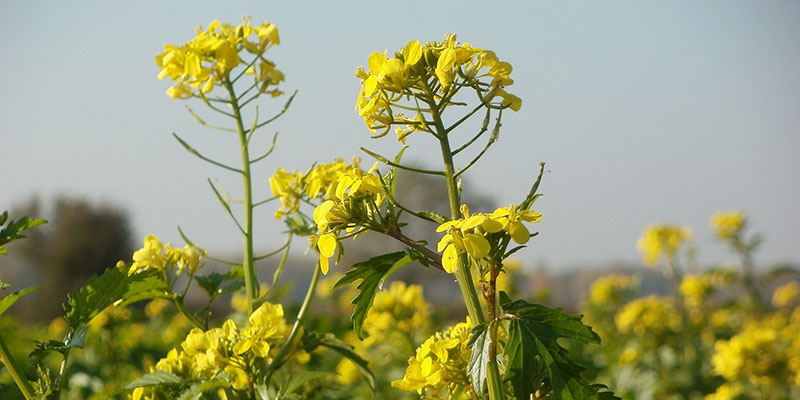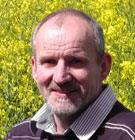
Co-products from rapeseed
Context
Rapeseed (Brassica napus) is the world’s third-largest source of vegetable oil, with the residual protein-rich meal used as feed for livestock. There are additional products of rapeseed that are underutilised and that could be further developed as valuable co-products. These include straw biomass (which could be used to produce biofuel), antioxidant vitamins, phytosterols and waxes.
The research
Our research focuses on co-products for which quality (and therefore commercial utility) has not been selected. Using the genomic technology we developed and termed Associative Transcriptomics, we identified beneficial alleles in genetic diversity collections of B. napus, which in addition to European winter habit oilseed rape, also includes spring habit oilseed rape, fodder, kale and swede type. We generated novel genetic diversity, where beneficial alleles do not exist in such collections, using the traditional approach of radiation treatment, accelerated by genomic approaches including genome re-sequencing.
Project activities and publications
Contact us
Centre for Novel Agricultural Products
cnap@york.ac.uk
+44 (0)1904 328776
Department of Biology,
University of York,
Wentworth Way,
York
YO10 5DD
Featured researcher

Professor Ian Bancroft
Professor Bancroft is an expert in plant genomics who formerly worked at the John Innes Centre in Norwich.
Featured researcher

Lenka Havlickova
Dr Havlickova uses Associative Transcriptomics to dissect the genetic basis of variation for a range of traits in Brassica napus and is pioneering genomics-led predictive mutation breeding in rapeseed.
Contact us
Centre for Novel Agricultural Products
cnap@york.ac.uk
+44 (0)1904 328776
Department of Biology,
University of York,
Wentworth Way,
York
YO10 5DD